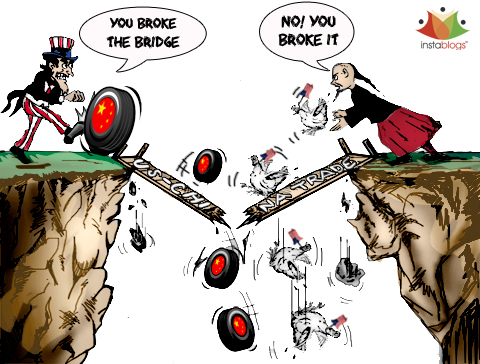New report weighs pros, cons of U.S.-China BIT

Politico | 2 August 2016
New report weighs pros, cons of U.S.-China BIT
By Megan Cassella
A U.S.-China bilateral investment treaty could significantly increase investment flows between the world’s two largest economies and help level the playing field for U.S. companies operating in China, according to a new report from the U.S.-China Economic and Security Review Commission that also identifies some potential concerns with the pact, which could be concluded this year.
Staying on the positive side, the watchdog panel said the U.S.-China BIT could significantly improve market access for U.S. firms if it succeeds in lifting barriers in the nearly 100 sectors and industries where foreign investment is currently restricted or prohibited. China’s services sector, for example was worth more than $4.9 trillion in 2014, but remains effectively closed in many areas to outside firms, the report noted.
A successful BIT would also bolster China’s domestic reform effort, while setting a precedent for other initiatives, such as the EU-China BIT, the Regional Comprehensive Economic Partnership between China and 15 other countries and the long-envisioned Free Trade Area of the Asia-Pacific, covering all 21 members of the Asia-Pacific Economic Cooperation group.
However, the lack of reliable data on the impact of current Chinese investment on both the U.S. economy and national security “can impede the ability of U.S. policymakers to shape a prospective BIT with China,” while the Chinese government’s large role in the economy raises questions about the extent to which Chinese investment in the United States could be motivated by government objectives, rather than economic interest, the report said.
State control of many Chinese companies “also raises important questions about the ability of a BIT, even a high-standard one, to truly level the playing field for U.S. companies,” while the U.S. government also needs to be careful not to include provisions that could lock in current unfavorable market conditions in China, the report said.
“Finally, regardless of how comprehensive and high-standard a final U.S.-China BIT may be, China’s compliance with its commitments remains a paramount concern for U.S. officials and companies,” the report said. To read more, click here.





